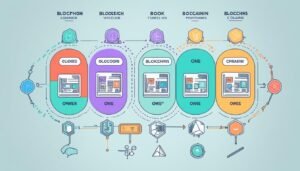Russian President Vladimir Putin has signed a law legalizing cryptocurrency mining in Russia, recognizing mining activities as part of turnover. Only registered Russian entities and individual entrepreneurs can mine, while individuals can participate under energy consumption limits. The law allows trading of foreign digital assets on Russian platforms but gives the Bank of Russia the power to restrict certain assets. Putin emphasized the need for a structured legal framework for digital currencies to spur economic growth. The law will take effect ten days after publication.
Highlights -📜
- Putin signs law legalizing cryptocurrency mining in Russia.
- Mining activities classified as part of turnover, not currency issuance.
- Only registered Russian entities can engage in mining.
- Individual miners can operate without registration under energy limits.
- Trading of foreign digital assets allowed on Russian platforms.
- Bank of Russia can restrict assets threatening financial stability.
- Putin calls for a structured legal framework for digital currencies.
Key Insights -💡
- Legal Recognition of Mining: The law’s classification of mining as part of turnover legitimizes the industry, potentially attracting investment and boosting economic activity in Russia.
- Regulated Participation: By allowing only registered entities to mine, the law aims to create a controlled environment, reducing illegal operations and enhancing government oversight.
- Individual Miners’ Flexibility: The provision for individual miners to operate without registration, as long as they adhere to energy limits, encourages grassroots participation in the crypto space.
- Foreign Asset Trading: Permitting trading of foreign digital assets indicates an openness to global markets, enhancing Russia’s position in the international cryptocurrency landscape.
- Bank of Russia’s Authority: The ability of the Bank of Russia to restrict certain assets shows a cautious approach to financial stability, balancing innovation with risk management.
- Economic Development Potential: Putin’s emphasis on digital currencies suggests a strategic move to leverage technology for economic growth, indicating a shift in Russia’s approach to finance.
- Implementation Timeline: The law’s quick implementation reflects urgency in adapting to the evolving digital economy, signaling a proactive stance toward cryptocurrency regulation.
Introduction to Cryptocurrency Mining in Russia
In a significant move for the cryptocurrency landscape, Russian President Vladimir Putin has officially signed a law that legalizes cryptocurrency mining within the country. This landmark legislation aims to provide a structured legal framework for digital currencies, paving the way for growth and innovation in this burgeoning sector.
Understanding the Key Concepts
Digital Currency Mining
Digital currency mining is the process by which transactions are verified and added to a blockchain ledger. In Russia, this activity is now recognized as a legitimate part of economic turnover, as opposed to merely the issuance of digital currencies. This shift in classification is crucial for the future of mining operations in the country.
Mining Pools
The law also introduces the concept of mining pools, which are groups of miners who combine their computational resources to increase their chances of successfully mining digital currencies. This cooperative approach allows smaller miners to participate more effectively in the cryptocurrency market.
Mining Infrastructure Operators
Mining infrastructure operators are entities that provide the necessary facilities and services for cryptocurrency mining. The new law outlines specific regulations governing these operators, ensuring that they comply with national standards and contribute to the country’s economic framework.
Regulatory Framework for Miners
Legal Entities and Individual Entrepreneurs
Under the new legislation, only registered Russian legal entities and individual entrepreneurs can engage in cryptocurrency mining. This requirement aims to ensure that all mining activities are conducted transparently and within the legal framework established by the Russian government.
Individual Miners
Interestingly, individual miners are permitted to mine cryptocurrencies without formal registration, provided their energy consumption does not exceed government-set limits. This provision encourages grassroots participation in the mining sector and supports individual entrepreneurs in the digital economy.
Trading Foreign Digital Financial Assets
One of the pivotal aspects of the new law is its allowance for trading foreign digital financial assets on Russian blockchain platforms. This opens up opportunities for Russian users to engage with a broader range of digital assets, fostering a more vibrant digital economy.
The Role of the Bank of Russia
While the new law promotes trading, it also empowers the Bank of Russia to ban the placement of certain digital assets that may threaten the country’s financial stability. This regulatory authority will help mitigate risks associated with volatile digital currencies and protect the broader economy.
Putin’s Vision for Russia’s Digital Economy
During a recent government meeting, President Putin emphasized the need for Russia to “seize the moment” in establishing a robust legal framework for digital currencies. His vision extends beyond mere regulation; he sees digital currencies as potential drivers of economic growth and innovation.
The Importance of Proper Regulation and Infrastructure
Economic Development Potential
Putin highlighted the potential of digital currencies to contribute significantly to Russia’s economic development. By creating a favorable regulatory environment, the government aims to attract investments and stimulate technological advancements in the digital space.
Need for Infrastructure
To fully capitalize on the benefits of cryptocurrency mining and digital currencies, Russia must focus on developing adequate infrastructure. This includes creating reliable energy sources, efficient data centers, and robust security measures to protect digital assets.
Implementation Timeline
The new law is set to take effect ten days after its official publication, although specific provisions may have different implementation dates. This swift timeline indicates the government’s urgency in adapting to the rapidly evolving landscape of digital currencies.
Conclusion
The legalization of cryptocurrency mining in Russia marks a pivotal moment in the nation’s approach to digital currencies. With a structured legal framework in place, the potential for economic growth and innovation is significant. As President Putin has noted, the focus on regulation and infrastructure is vital for harnessing the benefits of this dynamic sector.
As the world watches, Russia’s bold steps into the realm of cryptocurrency mining could serve as a blueprint for other nations considering similar legislation. The future of digital currencies in Russia appears promising, with opportunities for both individual miners and larger enterprises to thrive in this new regulated environment.
Stay tuned for further updates as Russia navigates this exciting new chapter in its digital economy.











